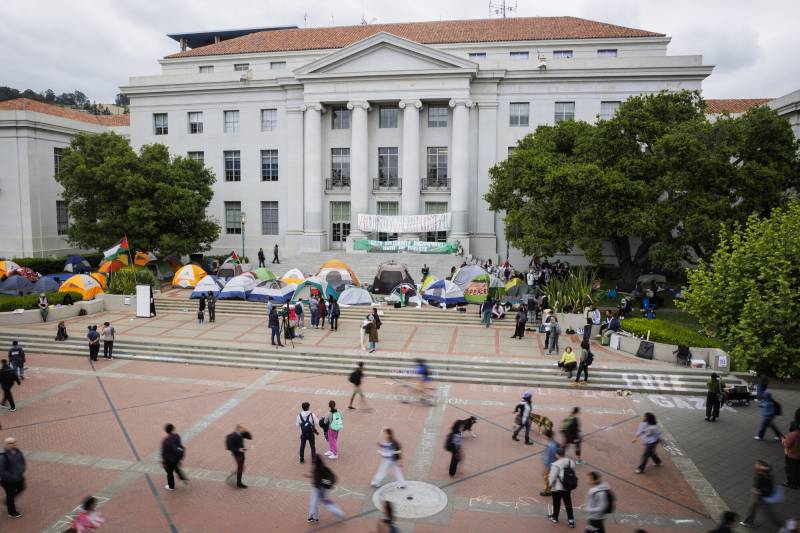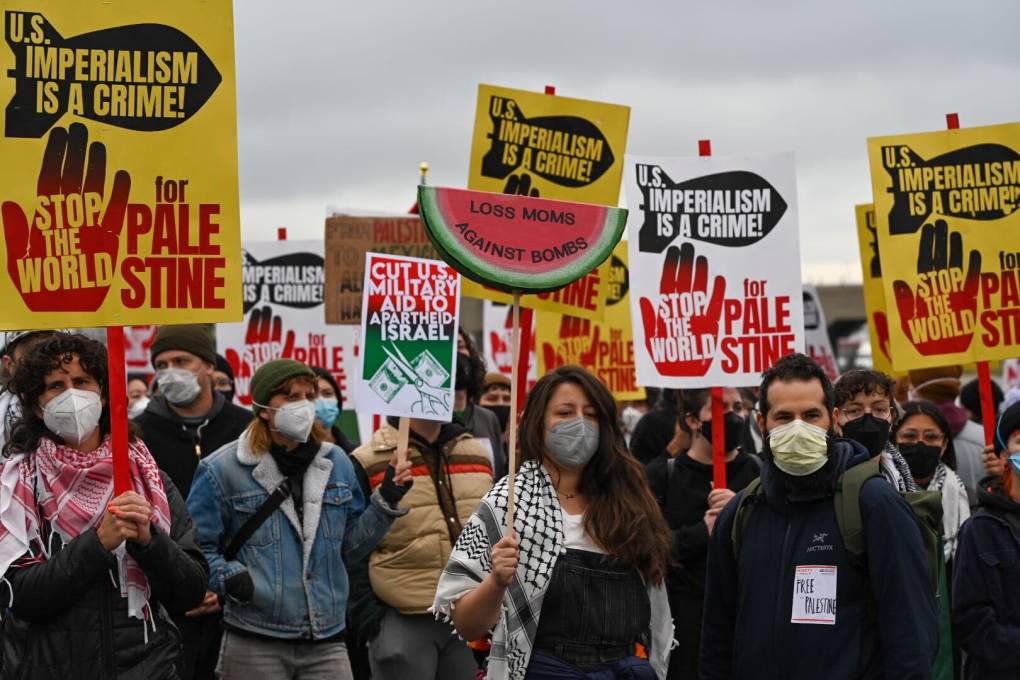“Behavior of that sort will not be tolerated,” he said.
In a separate letter addressed to the UC community, Drake said that campus leaders had spent the summer reflecting on the events of the past year and that consistent policies and laws were key to achieving a balance between free speech and the need to maintain safety and university operations.
Amid months of nationwide student protests against the ongoing war between Hamas and Israel and universities’ investments in Israel, the last school year’s demonstrations at UC campuses led to “significant disruptions that resulted in violence, vandalism, class and research interruption, and restricted access to public spaces,” the University of California Office of the President said in a statement to KQED.
“While we provide many opportunities and venues for the expression of diverse viewpoints at UC campuses, activities that violate the law, University policy, or both will not be tolerated,” the statement reads.
The letters come as students return to California campuses for a new school year — starting this month at UC Berkeley and UC Merced and next month at the other eight campuses.
“I think what they’re trying to do is make more consistent their authoritarian crackdown on these protests,” said Graeme Blair, an associate professor of political science at UCLA and a member of the Faculty for Justice in Palestine, in a phone interview with KQED. “We plan to challenge these, and I think that some of the policies that they are suggesting are clearly unconstitutional and won’t stand up to legal scrutiny.”
Jamie Hindery, a UCLA graduate student and former negotiator for the UC Santa Cruz encampment, criticized the policy on masking.
“To receive an email signed by a medical doctor that outlines a potential ban on masking was extremely unsettling and disconcerting,” Hindery said, pointing to an increase in COVID-19 cases. “Banning masks, whether to conceal identity or to protect from illness, is a violation of our First Amendment rights and any enforcement of that policy would surely result in lawsuits against the university.”
When asked how campuses would distinguish between prohibited masks and those used to protect from COVID-19, a spokesperson for the UC Office of the President said officials will evaluate the intent behind their use.
“If a mask is worn in a context where the wearer is violating policies or laws, officials may determine that the mask is being used to evade identification,” the spokesperson said. “Individuals or groups believed to be engaging in prohibited conduct will be informed about the violation[s], asked to, and then directed to take corrective actions and modify their behavior.”
In an emailed statement, the Bay Area Chapter of the Palestinian Youth Movement said the UC system’s response to the protests “exposes their priorities in repressing and silencing students and campus community members across California, and ultimately ignoring the core popular demands to divest from entities that fuel Israel’s ongoing genocide in Gaza — a genocide that has led to massacring of well over 40,000 Palestinians.”


